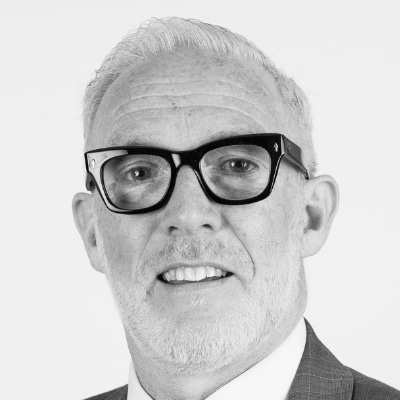Great cultures do not only exist in companies such as the Apple, Google, Amazon’s of this World. They are not exclusive or unique. Is your company thought of in the same way that these massive companies are? How much time and effort do you put into creating and maintaining a strong positive culture through leadership compared to the effort you invest in the development of your products or services. Do you invest as much time into your people who often create and then deliver these products / services or are they seen as an afterthought ….? if at all.
There are lots of questions that should be asked by the leaders of organisations. Let’s have a look at some:
Do your people go home at the end of the day or a shift and tell their significant other in an enthusiastic and positive way …… “You will never believe what we were / I was doing at work today!”. Or do they not have a lot if anything to share about what they have been doing or learning in their work life. We typically spend a minimum of a third of our five-day week at work ……. Why then should it not be some of the best time(s) we are involved in?
Would you overhear your people describe where they work as being a great or incredible place to work? Have you ever undertaken a survey – so simple to do, that will allow your people to feedback to you as leaders what they think and feel about your organisation. If you have done this, have you listened, have you made changes and did you notice them in the next survey? Are your people working to their fullest potential or are they simply “ticking boxes / treading water” to ensure that they simply get through the day.
I worked for a company that had undertaken a survey in February and only when I joined in May that year, I found out that the survey had been taken. But no sharing of the results had been given back to the employees. That was immediately fixed. The results unsurprisingly were not massively positive with “you don’t listen to us” ironically as a low scoring response. I therefore had a second survey undertaken in the June – after extensive communication meetings where listening was first and then sharing plans was second. This survey was fed back within 2 weeks and saw positive moves in the right direction from the first survey. The point is – if you are going to do something like a survey – do it right, share the results quickly. Good and bad, and then work on closing the gaps that need closed. Be honest about the areas that need improving and ask for help to resolve them.
To a certain extent, all leaders are salespeople. But what is it that you talk most about to others like customers, suppliers and investors? Is it the product orservice or is it the people who make these things happen and who are functioning at their best and delivering and incredible output that customers cannot get enough of?
Leadership is not a right or gained from longevity or who you know – at least it should not be. It should be seen as a privilege to lead people and teams. To do and achieve things that they might have never either dreamed of or thought impossible. To challenge people to encourage them and to see them grow is something that when done correctly is incredible. It needs to be something that potential leaders should aspire to achieve. When you are in the position of leadership, do you know that your people feel respected, trusted, and valued. Do they feel heard and encouraged by your leadership? Remember, to attain these positive outcomes is not easy. Leadership is like parenting. Boundaries and expectations need to be set and the leader does have the power to praise or chastise. However, if utilised correctly, everyone will appreciate where they stand, that they are cared for and that contributions are expected and will be listened to, but it is not a commune that is in charge.
From the feeling of respect, trust, and encouragement to grow as individuals, this in turn generally has a return measured in terms of loyalty, lower levels of turnover of staff, absenteeism, health & safety measures as well as productivity and effectiveness etc. Ultimately in this very competitive world and markets that we function in, as leaders we should be looking to create an environment and culture that draws new people to want to work in the organisation rather than leave it or would not even entertain it.
Note: there are organisations that have a reputation for not being a great place to work. Do not become one of those. To achieve the positive, work must be invested in ensuring this goal of attracting the right people.
I have pitched the above with regards to how leaders work with, interact with the people in their charge. But how does the organisation prepare its current and future leaders? Is “Training” in general focussed on the more technical side, i.e. products and services rather than leadership? Machines come with a handbooktelling you how to switch them on-off, how to maintain them to get the optimum out of them. People do not – and each one is totally unique, will hear things in certain ways, will react in a certain fashion and have individual desires and needs. As a qualified coach one of the many things you learn is that we are all individuals and as such leadership is a challenge. One of the main skills you learn as a coach is active listening to show the other person you care, you are there for them and are interested in them and in what they have to say/offer. Stephen Covey has a great way of describing listening and communicating:
This is so important when seeking to engage and understand – each other. These are often seen as “soft skills”, but it is becoming more and more important in areas such as Emotional Intelligence [EQ] that a) they matter and b) the younger generations want to have meaning and feel valued in and by the organisations that they chose to work in.
- A survey conducted by The Society for Human Resource Management said
- “72% of employees ranked “respectful treatment of all employees at all levels” as the top factor in job satisfaction
- Lauren Landry is the associate director of marketing and communications for Harvard Business School Online indicated
- EQ accounts for >90% of what high performers [in leadership] have or are good at
- 71% of respondents sighted EQ over IQ
- Those with High Emotional Intelligence [EQ] were more likely to
- Stay calm under pressure
- Resolve conflict more effectively
- Respond better to co-workers with more empathy
Therefore, as leaders we need to be aware of these changes that are not only required but becoming the expected that people want to see in an organisation. I was lucky enough as a Judge for the TMMX – Manufacturer of the Year Awards in the UK to come across a company [that went onto win the overall competition], when myself and other judges were assessing them as part of the Operational Excellence section to witness that they worked at identifying future leaders and then “Investing” in them by placing them in an internally generated school for 3 months [full-time] where they were taught a multitude of aspects around leadership, people management and areas such as mentioned above – listening, communicating, emotional Intelligence, dealing with conflict [Using such approaches as the following model]
- E.S.C.
- Describe the situation
- Express how you feel
- Specify what you want
- Consequences which will result, either positive or negative
Once they emerged from this training, they were not then left alone, they were paired up with a mentor for the next 12 months who would monitor, assist, and work with the new prospective leader. In case you were wondering: this was not a massive company, but one that put great stock in recognising that if the people are right, then the products, services and economics of the company will be right in the long-term.
In terms of valuing your employees one way to consider this question is to reflect what the immediate thought/action is if a down-turn in business occurs. How would you react ….
- Stop all training and investment in people
- Lay people off
These are often seen to be the “right things to do” as it is often seen as short-term protecting the bottom line. Rarely are the more challenging options taken as they are seen to be either impossible or too difficult. However, down-turns rarely last forever, and as such economic improvements will come around. When they do, have you let go of or simply gifted your best assets i.e., your people potentially to your competitors.
Again, unlike capital equipment people take time to settle in, understand and positively contribute. If they have had good leadership, been respected, and treated well, they will help you to come up with local imaginative solutions to protect the company during these difficult periods, but only if they feel valued and listened to and can see that their efforts and potential sacrifices will be recognized later.
All businesses this last year globally have had a terrible time – some [very much dependant on the sectors they are in may have even benefited, but the majority have suffered or at least had serious struggles] therefore it is vital [as no-one predicted Covid-19] that you have worked at and built a strong culture, and good team with strong empathetic leadership ahead of such events, which will come about again in the future – we simply don’t know when or in what form. Preparation and planning are everything.
Leadership is a tough challenge – as this last year has shown it will often require courage to do the best and make the most of the hand that is dealt an organisation. You therefore need to ask yourself: Have you created a safe, trusting, respectful environment and built a capable workforce who will support you when that tough time comes? If you have, you will stand a better chance than others who have viewed their employees as merely assets, individuals and groups to be manipulated – often for the leaders own personal gain.

Derek is an experienced Operational Executive who is as at ease with day-to-day operational issues as he is working at Board Level. Derek has over 30 years’ experience ranging across various sectors. Most recently he has been involved in turnaround roles, providing support to management teams and enabling shop floor-led empowerment and cultural change.
He focuses on assessing the issues, working with team members and key stakeholders to ensure that through a systematic approach the final result is delivered in a timely fashion. This will focus on operational and financial measures to deliver tangible results.
Derek has experience in leading and driving initiatives resulting in several awards e.g. The Queen’s Award for Excellence in Innovation plus various national manufacturing awards such as Manufacturer & Factory of the Year. As a result of this he has been a Judge for the TMMX [Manufacturer of the Year] Award specialising in the Operational Excellence & Leadership and Strategy categories.
Derek holds an MBA, BSc[Hons] in Production Engineering, is a Member of The Institute Of Directors [IOD] and a Member of The Institute for Turnaround [IFT]. He is a qualified Executive Coach at ILM Level 7 and a Thomas International Personal Profile Analysis [PPA] practitioner. He has also completed the IOD’s Certificate and Diploma in Company Direction and is certified in the Role of the Non-Executive Director and Role of the Chair.
His experience in manufacturing is wide-ranging, having worked in the UK, USA, Mexico, Italy, Austria and Hungary, and across the electronics manufacturing spectrum with Motorola Semiconductors and Motorola Cellular, Hughes Microelectronics (Defence) and Avex Electronics and Jabil (electronics manufacturing services), as well as in medical products and devices with Vernacare and Hygenius, with M2FX in optic-fibre cable manufacturing, and with Forterra (building materials). He has also gained experience in automotive parts manufacture and supply with John McGavigan Ltd.Derek is also a Lay Council Member for The Law Society of Scotland since 2017. As part of this, Derek is a member of the Finance Sub-Committee and also a Trustee of the Law Society’s pension fund.






